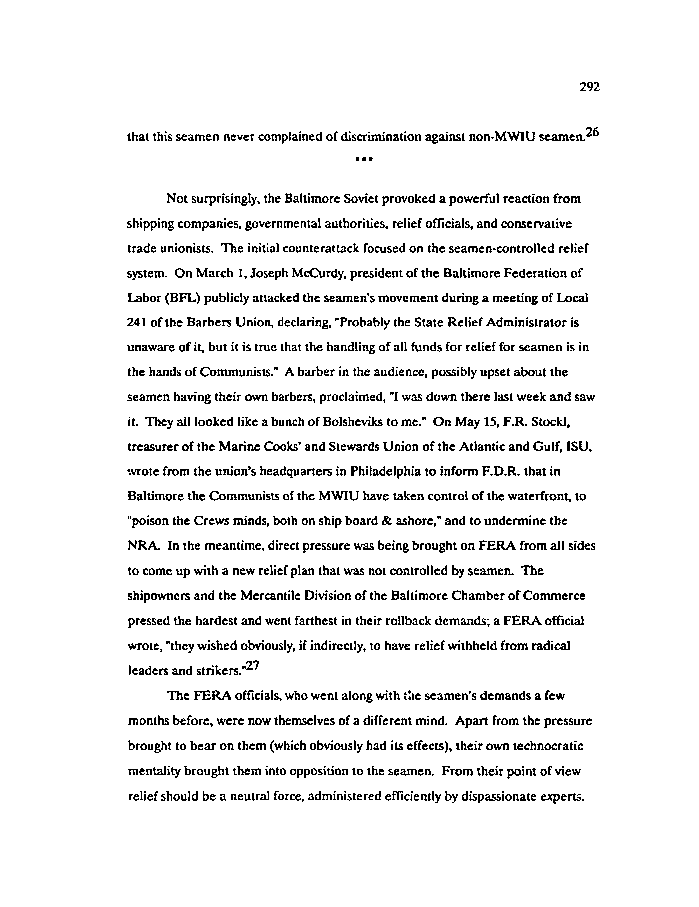|
292
that this seamen never complained of discrimination against non-MWIU seamen/"
*••
Not surprisingly, the Baltimore Soviet provoked a powerful reaction from
shipping companies, governmental authorities, relief officials, and conservative
trade unionists. The initial counterattack focused on the seamen-controlled relief
system. On March 1, Joseph McCurdy, president of the Baltimore Federation of
Labor (BFL) publicly attacked the seamen's movement during a meeting of Local
241 of the Barbers Union, declaring, "Probably the State Relief Administrator is
unaware of it, but it is true that the handling of all funds for relief for seamen is in
the hands of Communists." A barber in the audience, possibly upset about the
seamen having their own barbers, proclaimed, "I was down there last week and saw
it. They all looked like a bunch of Bolsheviks to me." On May 15, F.R. Stock],
treasurer of the Marine Cooks' and Stewards Union of the Atlantic and Gulf, ISU,
wrote from the union's headquarters in Philadelphia to inform F.D.R. that in
Baltimore the Communists of the MWIU have taken control of the waterfront, to
"poison the Crews minds, both on ship board & ashore," and to undermine the
NRA. In the meantime, direct pressure was being brought on FERA from all sides
to come up with a new relief plan that was not controlled by seamen. The
shipowners and the Mercantile Division of the Baltimore Chamber of Commerce
pressed the hardest and went farthest in their rollback demands; a FERA official
wrote, "they wished obviously, if indirectly, to have relief withheld from radical
1*7
leaders and strikers."**'
The FERA officials, who went along with the seamen's demands a few
months before, were now themselves of a different mind. Apart from the pressure
brought to bear on them (which obviously had its effects), their own technocratic
mentality brought them into opposition to the seamen. From their point of view
relief should be a neutral force, administered efficiently by dispassionate experts.
|

